WordPress site maintenance is a key component of owning and operating a site in the first place and having the right tools makes it much easier. However, what those are can vary a lot from person to person.

That’s why we’re spending time here today outlining essential tools that speed up the maintenance process, make it more efficient, and offer greater stability. We’ll be covering things like FTP clients, database management tools, and third-party platforms as well as a variety of other tool types that you may find helpful.
Let’s dive right in.
Code Editors
The first maintenance tools for WordPress we’ll discuss here are code editors. This sits atop our list largely because code editors are versatile and required to complete a variety of maintenance tasks. From adding code snippets to your site’s functions.php file to diagnosing issues.
1. Sublime Text
First up is Sublime Text, a code and text editor for Mac. It offers a wide range of features including split panes, GPU rendering, context-aware autocomplete, and a ton of syntax definitions.
2. Notepad++
Another option is Notepad++. This code editor makes it easy to make adjustments to your site’s source code on the fly and serves as a Windows-based option here.
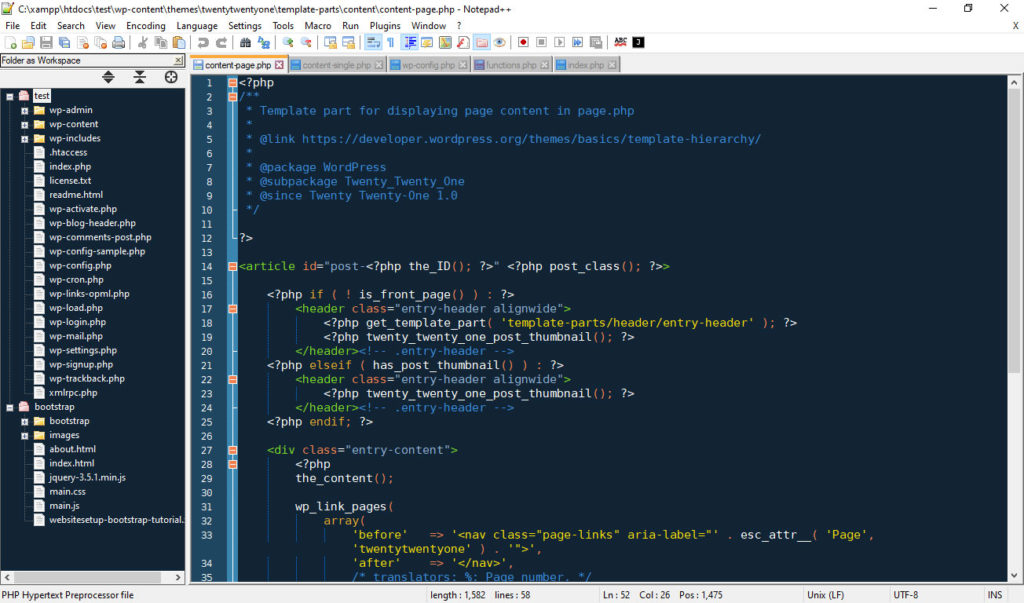
3. Brackets
Or, you may wish to consider Brackets, another code editor. This one includes a variety of tools including visual editing and preprocessor support. It’s an ideal marriage of front-end and back-end development functionality.
4. Atom
Atom is another option for a code editor you should consider. Where this one shines is in its collaboration tools. With it, you can share your workspace and edit code with others remotely in real-time.
5. Bluefish
Or, you might want to opt for Bluefish, the last code editor we’ll be discussing here. This one is full of features that serve experienced and newer designers alike. It also supports a variety of markup languages.
FTP Clients
Another type of tool you should consider is an FTP client. There are many available, each bringing something slightly different to the table. The overall goal here though is to make it easy for site owners to connect to their site’s servers with minimal fuss.
6. Cyberduck
The first FTP client we’ll be discussing is Cyberduck, which is an FTP client and cloud storage browser for both Mac and Windows. It offers support for Google Drive, OneDrive, Dropbox, Microsoft Azure, and many other services.
7. Free FTP
A great free option is Free FTP, which is an easy-to-use option that allows you to connect to your website’s server effortlessly.
8. FileZilla
Or perhaps FileZilla is more your speed. This FTP client works on Windows, Mac, Linux, and other operating systems. It’s easy-to-use, intuitive, and available in 47 languages. It’s also free.
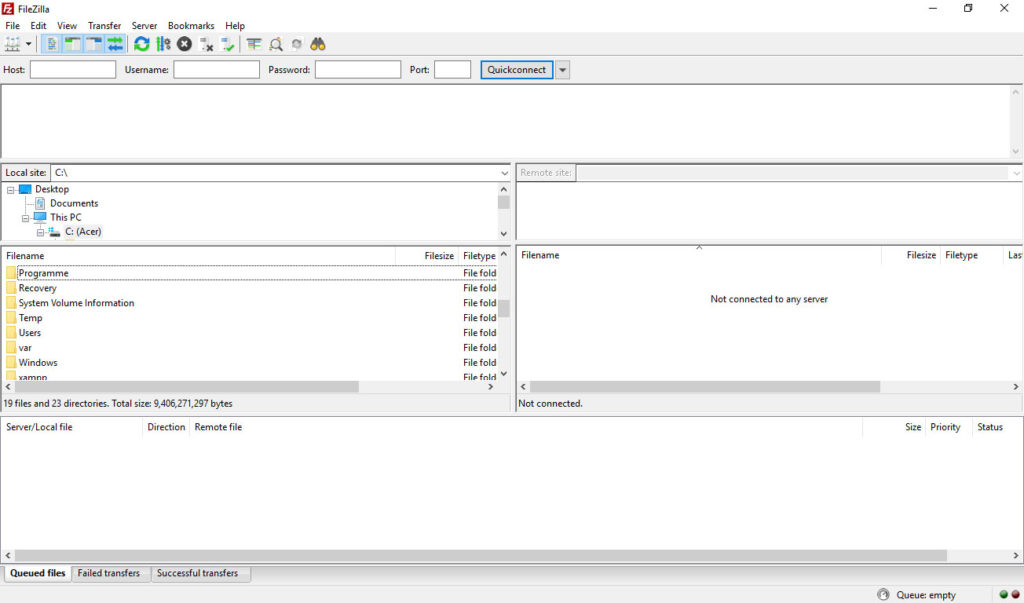
9. CuteFTP
CuteFTP is another option that streamlines the process for connecting to your website’s server, performing script transfers, and monitoring local folders.
10. ForkLift 3
Or you could choose ForkLift 3. It allows for easy connection to FTP and SFTP as well as third-party services like Rackspace, Google Drive, Amazon S3, and others. Plus, you can connect to several servers at once to manage files across them all.
Database Management Tools
If you truly want to be able to troubleshoot site issues caused by plugins, themes, or customizations, you’ll need to have a set of database management tools on hand. What you’ll find here is a mix of tools that range from WordPress plugins to paid-for site maintenance services.
11. UpdraftPlus
First up is UpdraftPlus, a robust maintenance service that takes care of security protection, updates, and prevents hacking. This service can also do regular maintenance and backups, which helps to prevent user error in the long-run.
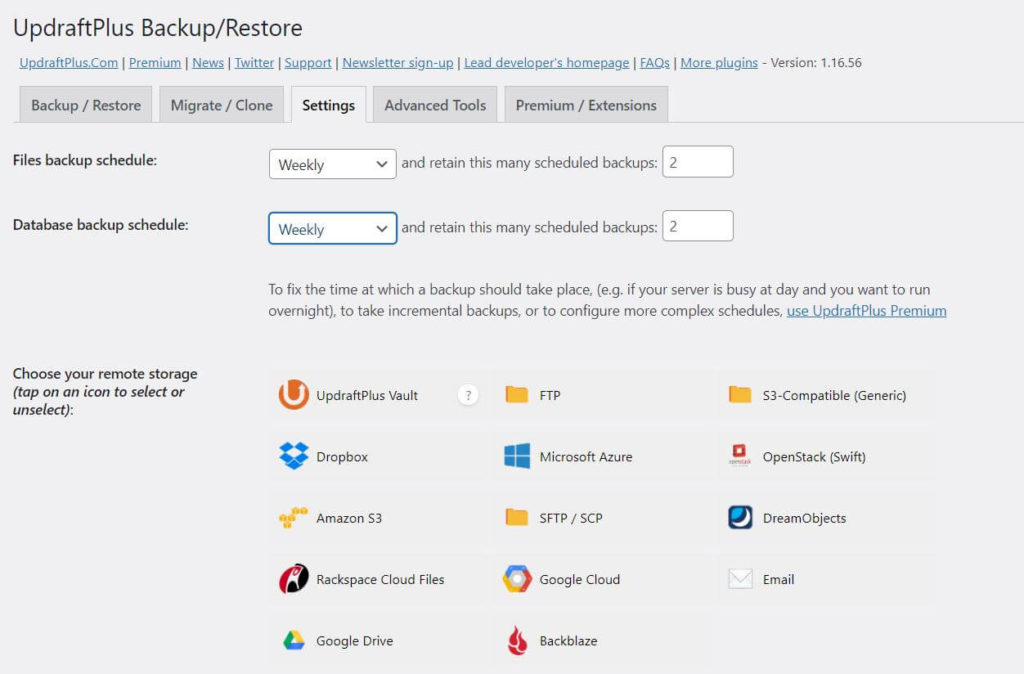
12. VaultPress
Another option is VaultPress. It streamlines the backup process — both site content and your site’s database. Other services offered include site migration, file repair, restoration, spam defense, and file scanning.
13. BackWPup
BackWPup is another WordPress backup plugin to consider. It works by saving your entire WordPress installation as a backup file to an external service of your choosing. This process can be fully automated so you don’t have to remember to handle it manually.
14. WPBuffs
Or you could opt for a management service like WPBuffs, which covers a wide range of maintenance features. It includes regular updates, backups, and security implementation. They also offer a deeper level of management like speed optimization, website edits, 24/7 website monitoring, and emergency support when you need it.
15. SiteCare
Still another option is SiteCare, which offers similar features as the above as well as day-to-day site maintenance and edits. They include a wide range of website marketing services as well.
Self-Hosted Management Tools
If you’re a do-it-yourself sort of web developer, we’ve scouted out a couple of self-hosted management tools that can help you take charge of your site’s maintenance as well.
16. InfiniteWP
The first option we’re suggesting here is InfiniteWP. The tool streamlines the process of maintaining your website thanks to bulk operations. You can configure certain maintenance tasks to run automatically, like backups and updates. You can also implement monitoring and site maintenance as you see fit. Finally, the plugin includes security, site monitoring, and reporting features as well.
17. MainWP
Alternatively, you could opt for MainWP, a free WordPress plugin that you can use on an unlimited number of websites and that puts a range of website maintenance tools at your disposal. With it, you can manage multiple sites, perform updates and backups, manage plugins and themes, and perform site health monitoring.
Speed Testing Tools
Another thing to track when maintaining your website is site speed. Here are a few options.
18. Google PageSpeed Insights
Google PageSpeed Insights is a handy tool to reference often. It’s totally free and offers in-depth performance analysis of how your site performs across multiple devices. To use it, you just have to input a web address and read the suggestions on how to improve your site’s speed.
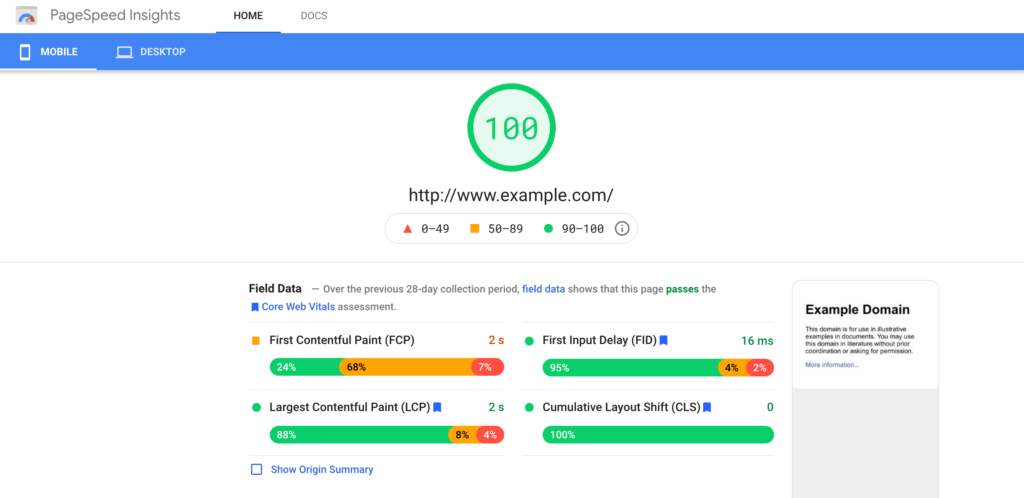
19. GTmetrix
GTmetrix is another speed testing option that’s worth a look. It provides a wide range of features that you can use for free. A Pro plan gives you additional features like global monitoring, mobile device testing, and a greater number of site monitors. The info provided helps you analyze your site’s largest contentful paint, cumulative layout shift, and other performance metrics as well. For more info on the latter, check out our article on core web vitals as well.
20. Pingdom Website Speed Test
Pingdom Website Speed Test is another option that puts website speed testing right at your fingertips. This one allows you to view a list of ways to adjust your site’s performance based on how it’s currently performing.
Broken Link/404 Scanners
If you have a site with a lot of content, it’s inevitable that links will break at some point. A visitor happening upon a broken link or landing on a 404 not found page can break the flow of their visit and even result in lost conversions and interest. Here are a few tools and plugins that make identifying broken links, images, and pages a snap.
21. Broken Link Checker
First up is the Broken Link Checker, which is a WordPress plugin that monitors your site for defective links and images. It alerts you when they occur on both internal and external links within posts, pages, headers, footers, widgets, and comments.
22. W3C Link Checker
Another tool is W3C Link Checker. This one works by checking for broken internal and external links, anchor text, scripts, and images. It’s an external tool, so not installed on your website, and you have to manually input your site URL to run a scan. But it’s a great way to identify problems quickly without having to add the bulk of an additional plugin.
23. Screaming Frog SEO Spider
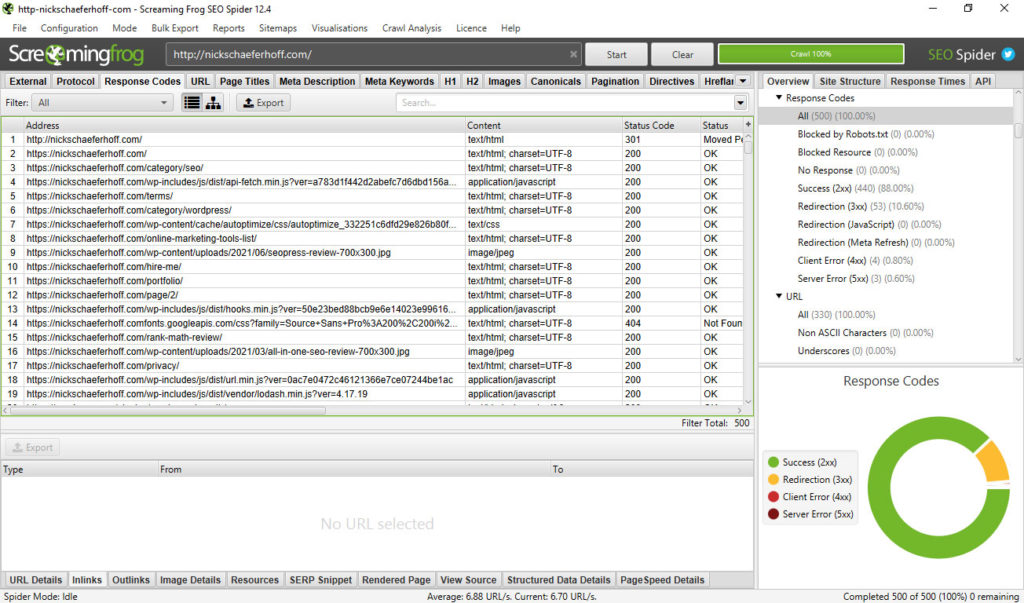
Or you could opt for the Screaming Frog SEO Spider Website Checker. This one is a website crawler that helps to identify a variety of site issues, including broken links and SEO issues. With the free version, you can crawl 500 distinct URLs. The paid edition allows you to audit more websites and gain access to a wider range of features.
24. Link Fixer
Last in this category is Link Fixer. This plugin used to go by the name Permalink Finder and offers an easy way to detect when WordPress can’t locate a permalink. Instead of throwing a 404 error, this plugin first tries to identify any other posts or pages with similar words in their slugs and then redirect site visitors to the closest match. Search engines also see a 301 redirect instead of the 404, which helps to preserve your SEO standing.
Update Rollback Plugins
One issue you may run into at some point is instances where site updates actually break your website. An update rollback plugin makes it easier to back back to when things were still working. We’ve collected a few options for you here.
25. WP Rollback
The first plugin in this category we’d suggest is WP Rollback. It makes it super easy to rollback any installed theme or plugin to a previous version. This can be conducted automatically and generally helps to streamline the entire process.
26. Rollback Update Failure
Then there’s the Rollback Update Failure plugin, which helps to address which issues arise after a major update occurs to your site. This plugin can set your site back to how it was prior to an update and it works for both plugins and themes. This way, you can fix whatever broke and then more easily figure out any plugin or theme incompatibilities that caused the issue in the first place.
27. WP Downgrade
WP Downgrade is another option that makes it so you can quickly and easily downgrade your WordPress website’s latest update. In reality that means you can force WordPress to install a specific release instead of the latest Core update. This offers a convenient way to revert to a previous version through the manner you’d perform with any other update.
Spam Plugins
The last category of site maintenance tools we’re covering is spam plugins. They help to stop the onslaught of spam comments that can sometimes flood into your website. Too much spam can slow down site speeds and leave it vulnerable to hacking attempts. The following plugins can help with that.
28. Akismet Spam Protection

Akismet is the top plugin for preventing spam comments from cluttering up your site. It works by cross-checking comments and submission through your comment forms against entries in a global spam database. This allows the plugin to identify malicious content at a faster rate and ensures your site is protected immediately.
29. Spam protection AntiSpam, FireWall by CleanTalk
Next, there’s the Spam protection AntiSpam, FireWall by CleanTalk plugin. This plugin provides spam protection in a number of ways and doesn’t rely on CAPTCHAs to do it. It promises to prevent spam in comments, contact emails, orders and bookings, as well as fake entries in surveys and polls.
30. WP Cerber Security, Anti-spam & Malware Scan
WP Cerber Security, Anti-spam & Malware Scan is another great spam plugin worthy of your consideration. This one helps to prevent hacking attempts, spam, and malware. It also works against brute-force attacks and can ward off spam by using a custom anti-spam engine. The plugin uses Google reCAPTCHA to prevent fake signups, registrations, comments, emails, and orders. Finally, it has an IP restricted access list for even greater spam prevention.
31. Wordfence Security
Last on our list is Wordfence Security, which is an all-encompassing security plugin. It includes the anti-spam and malware features we’ve already discussed here as well as an endpoint firewall. Stop brute-force attacks, malicious IP address, and malware in its tracks. Plus, use two-factor authentication and a whole host of other security features.
WordPress Maintenance Tools in a Nutshell
There you have it, a solid collection of tools for WordPress site maintenance that take the guesswork out of taking care of your site and put you in control of it each step of the way. From database management to link checkers to code editors, there’s something for everybody listed here. And often, you’ll find a multitude of these plugins useful.
What’s are your favorite tools for WordPress site maintenance? Please share in the comments!
Image source: Jack Douglass/Unsplash

1 Comment